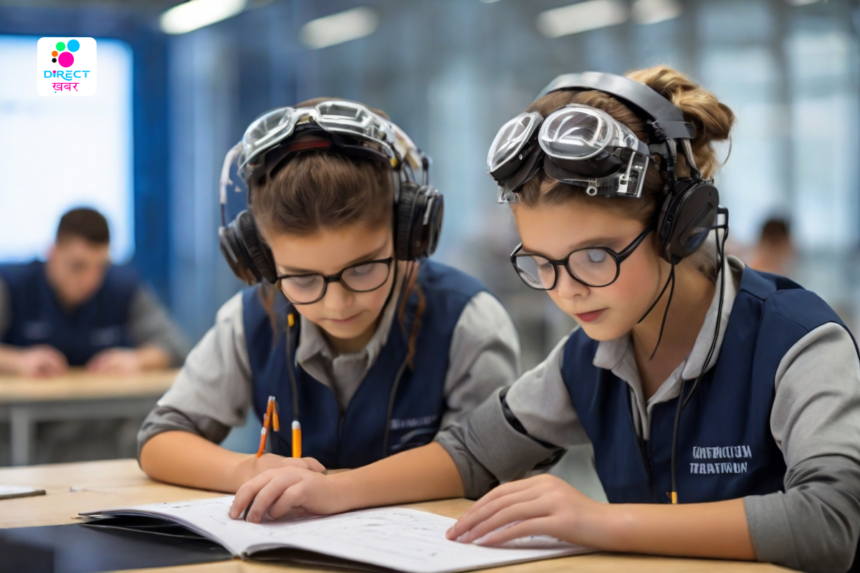The Future of Technical Education
Technical education is at the forefront of shaping the workforce of tomorrow. As we navigate through the complexities of the digital age, the demand for skilled professionals in various technical fields continues to surge. From artificial intelligence to renewable energy, technical education plays a pivotal role in equipping individuals with the knowledge and skills needed to thrive in a rapidly evolving world. In this comprehensive exploration, we delve into the future of technical education, examining key innovations, persistent challenges, and the vast opportunities that lie ahead.

- Technological Advancements and Curriculum Evolution:
The rapid pace of technological advancements necessitates continuous updates to technical education curricula. Emerging fields such as cybersecurity, data science, and blockchain technology require specialized skills that must be integrated into educational programs. Additionally, the rise of interdisciplinary approaches encourages collaboration between traditionally separate fields, fostering a holistic understanding of complex systems.
- Integration of Experiential Learning:
Hands-on experience is invaluable in technical education. As educators recognize the importance of practical application, there is a growing emphasis on experiential learning opportunities. Internships, co-op programs, and project-based assignments allow students to apply theoretical knowledge in real-world settings, enhancing their problem-solving abilities and preparing them for the demands of the workforce.
- Personalized Learning Paths:
One size does not fit all in technical education. Recognizing the diverse backgrounds and learning styles of students, personalized learning paths are gaining traction. Adaptive learning technologies tailor educational experiences to individual needs, pacing instruction according to student progress and providing targeted support where needed. This approach promotes greater engagement and retention, ultimately leading to improved learning outcomes.
- Embracing Diversity and Inclusion:
Diversity and inclusion are imperative for fostering innovation and creativity in technical fields. Efforts to increase representation of underrepresented groups, including women and minorities, are essential for building a more inclusive workforce. By creating supportive environments and implementing inclusive policies, educational institutions can attract and retain a diverse talent pool, enriching the learning experience for all.

- Addressing Skills Gaps:
Despite the increasing demand for technical skills, there persists a significant gap between industry requirements and educational offerings. To bridge this gap, collaboration between academia and industry is crucial. Partnerships with employers enable educational institutions to align their programs with industry needs, ensuring graduates possess the skills and competencies demanded by the job market.
- Leveraging Emerging Technologies:
Emerging technologies such as virtual reality (VR), augmented reality (AR), and artificial intelligence (AI) are transforming the landscape of technical education. VR and AR simulations offer immersive learning experiences, allowing students to interact with complex systems in a safe and controlled environment. AI-powered adaptive learning platforms provide personalized feedback and recommendations, enhancing the effectiveness of instruction.
- Continuous Professional Development:
Learning does not end with graduation; it is a lifelong journey. Recognizing the need for continuous professional development, technical education institutions are expanding their offerings beyond traditional degree programs. Short courses, workshops, and online modules cater to professionals seeking to upskill or reskill in response to evolving industry trends, ensuring that they remain competitive in the job market.
- Sustainability and Green Technologies:
With increasing concerns about climate change and environmental sustainability, there is a growing emphasis on green technologies within technical education. Renewable energy, sustainable design, and green manufacturing are becoming integral components of curricula, preparing students to address pressing global challenges. By instilling an ethos of sustainability, educational institutions contribute to the development of a more environmentally conscious workforce.
The future of technical education is characterized by innovation, adaptation, and collaboration. As we embrace emerging technologies, personalized learning approaches, and inclusive practices, we have the opportunity to empower individuals from all walks of life to thrive in the digital economy. By addressing skills gaps, fostering diversity, and promoting sustainability, we can ensure that technical education remains at the forefront of driving positive change in society. Through continuous evolution and a commitment to excellence, we can shape a future where every individual has the opportunity to realize their full potential in the ever-changing world of technology.






